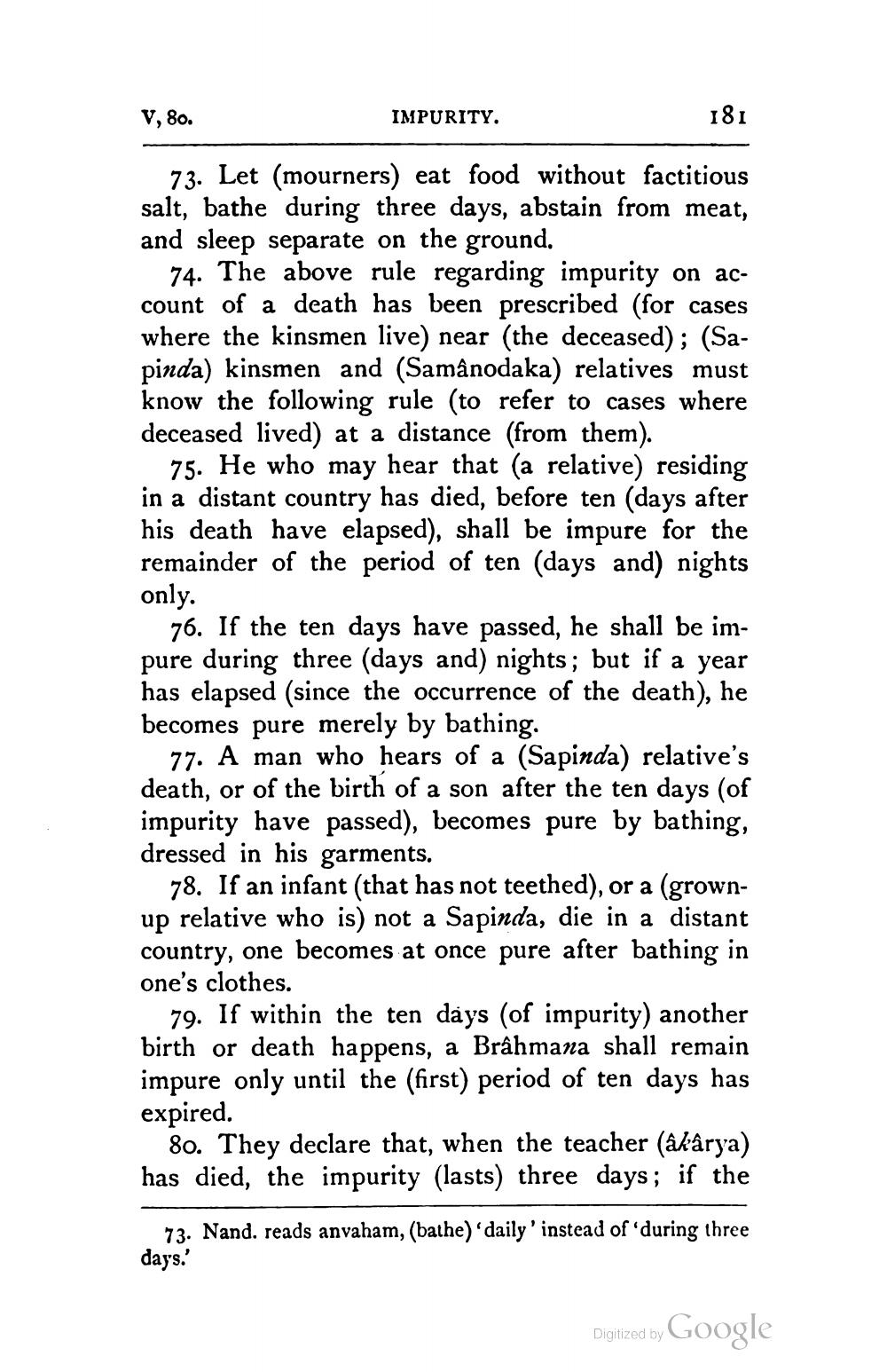________________
V, 80.
IMPURITY.
181
73. Let (mourners) eat food without factitious salt, bathe during three days, abstain from meat, and sleep separate on the ground.
74. The above rule regarding impurity on account of a death has been prescribed (for cases where the kinsmen live) near (the deceased); (Sapinda) kinsmen and (Samânodaka) relatives must know the following rule (to refer to cases where deceased lived) at a distance (from them).
75. He who may hear that (a relative) residing in a distant country has died, before ten (days after his death have elapsed), shall be impure for the remainder of the period of ten (days and) nights only.
76. If the ten days have passed, he shall be impure during three (days and) nights; but if a year has elapsed (since the occurrence of the death), he becomes pure merely by bathing.
77. A man who hears of a (Sapinda) relative's death, or of the birth of a son after the ten days (of impurity have passed), becomes pure by bathing, dressed in his garments.
78. If an infant (that has not teethed), or a (grownup relative who is) not a Sapinda, die in a distant country, one becomes at once pure after bathing in one's clothes.
79. If within the ten days (of impurity) another birth or death happens, a Brâhmana shall remain impure only until the (first) period of ten days has expired.
80. They declare that, when the teacher (âkârya) has died, the impurity (lasts) three days; if the
73. Nand. reads anvaham, (bathe) daily'instead of during three days.'
Digitized by Google




